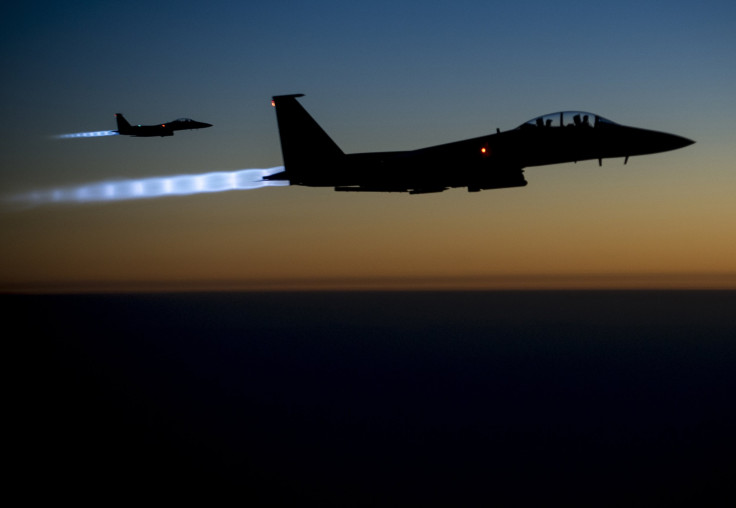US Strategy To Fight ISIS: Obama Met With Security Council About Plan To 'Degrade And Ultimately Destroy' ISIS

Still determined to find a way to combat Islamic State militants without strengthening Syrian President Bashar Assad, President Obama met with the National Security Council Tuesday to discuss U.S. strategy in the region. In a separate meeting, the U.S. envoy to the United Nations stressed the U.S. has not changed its position on President Assad.
"We continue to believe that the Assad regime is a magnet for terrorism," Ambassador Samantha Power said. "The moderate Syrian opposition provides the best alternative to the Assad regime and the best counterweight to ISIL [Islamic State group]."
Obama launched an air campaign in Iraq to counter the extremist group formerly known as the Islamic State of Iraq and Syria (ISIS) last month, which he expanded to Syria last week. Five Arab nations have joined the U.S. in airstrikes in Syria and several Western nations have launched attacks in Iraq. U.S. Secretary of State John Kerry said last week more than 50 nations have agreed in some capacity to join the U.S.-led coalition.
Airstrikes have helped some Iraqi and Kurdish forces regain seized land but have so far not completely stopped ISIS’ advances. In the past two weeks, the militant group seized 325 towns and villages in the northern Syrian countryside of Ayn al-Arab, known to Kurdish locals as Kobane, according to U.K. monitoring group the Syrian Observatory for Human Rights.
One criticism of the U.S. strategy to counter ISIS is it could lead to territorial gains for the Assad regime, which has been engaged in a civil war that killed more than 191,000 people. Part of the U.S. strategy in Syria is to help Assad’s opposition fight regime and militant forces and “build the capacity of governing,” Kerry said. Rebels have been fighting the Assad regime since the civil war broke out in 2011, which has only been made worse by ISIS’ territorial gains in the last few months. The Syrian opposition includes the Syrian National Coalition and fighters from several brigades affiliated with the Free Syrian Army.
The White House said the president was also briefed on the effectiveness of airstrikes on the Khorasan group, which is affiliated with al Qaeda-affiliated and may pose an equal -- if not more direct -- threat to the U.S. than ISIS. The president and security officials also discussed the “importance of making progress on implementing the nonmilitary aspects of the strategy, including organizing partner nation contributions along the multiple lines of effort that underpin our strategy to degrade and ultimately destroy ISIL.”
© Copyright IBTimes 2024. All rights reserved.






















